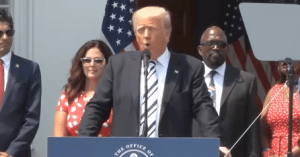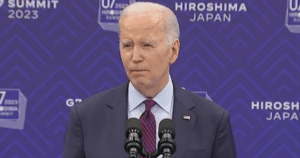State Department’s Global Engagement Center Ends Amid Controversy
The Global Engagement Center, a division of the U.S. State Department known for its role in combating misinformation, has officially ceased operation.
According to Fox News, The closure comes after intense scrutiny and accusations of the agency's involvement in domestic censorship.
Originally established in 2016, the Global Engagement Center (GEC) was tasked with identifying and countering foreign propaganda and misinformation. It played a central role in the United States' efforts to combat false narratives that could affect its political landscape and public safety. However, its mandate and methods soon came under severe criticism.
The Inception And Growth Of GEC
The GEC's early days were marked by a broad mandate to shield the U.S. from foreign disinformation efforts. Employing around 120 personnel with a budget of approximately $61 million, the center collaborated closely with various U.S. intelligence and defense bodies, such as the FBI, CIA, and NSA. Among its initiatives was funding the Atlantic Council's Digital Forensic Research Lab (DFRLab) to further digital investigations and education regarding global disinformation.
Graham Brookie, Director of DFRLab, asserted that their work under GEC grants was strictly focused on international threats and did not cross into domestic territories. Despite this, the operations of the GEC began to draw heavy criticism for allegedly stepping over the line into areas affecting American citizens and media.
Controversy And Criticism Lead To Scrutiny
High-profile figures like Elon Musk publicly condemned the GEC, labeling it as the "worst offender in U.S. government censorship & media manipulation." This sentiment was echoed in a report by the Republican-led House Small Business Committee, which criticized the GEC for its handling of both domestic and international misinformation tracking.
Journalist Matt Taibbi added to the controversy by reporting that the GEC funded secretive operations and was involved in methods that resembled blacklists, especially during the pandemic. According to Taibbi, this included tracking and flagging social media accounts based on their discussions about COVID-19's origins and spread.
Legal Challenges And Public Outcry
The operational transparency and strategies of the GEC were sufficiently troubling to lead to legal action. Texas Attorney General Ken Paxton, along with media outlets like The Daily Wire and The Federalist, sued the State Department and Secretary of State Antony Blinken. The plaintiffs accused the GEC of weaponizing its authority against American voices, infringing on the First Amendment rights of free speech.
America First Legal also exposed funding for projects deemed controversial, such as an educational video game called "Cat Park," designed to teach foreign youths about disinformation. Critics, including Mike Benz, slammed the game for propagating specific political views rather than purely educational content about disinformation.
Funding Withdrawal And Agency Closure
The end for the GEC was ultimately sealed by legislative changes. Funding for the center was not included in the National Defense Authorization Act (NDAA) of 2024, leading to its closure on December 23, 2024. In a formal statement, a State Department spokesperson confirmed, "The Global Engagement Center will terminate by operation of law [by the end of the day] on December 23, 2024."
While some conservatives lauded the termination as a removal of redundant government functions, suggesting that private sectors could handle disinformation analysis just as effectively, others mourn the loss of a centralized effort to combat foreign disinformation campaigns.
The closure of the Global Engagement Center marks a significant turnaround in how the United States handles misinformation and propaganda. It underscores the balance required between national security efforts and maintaining the civil liberties of American citizens.




